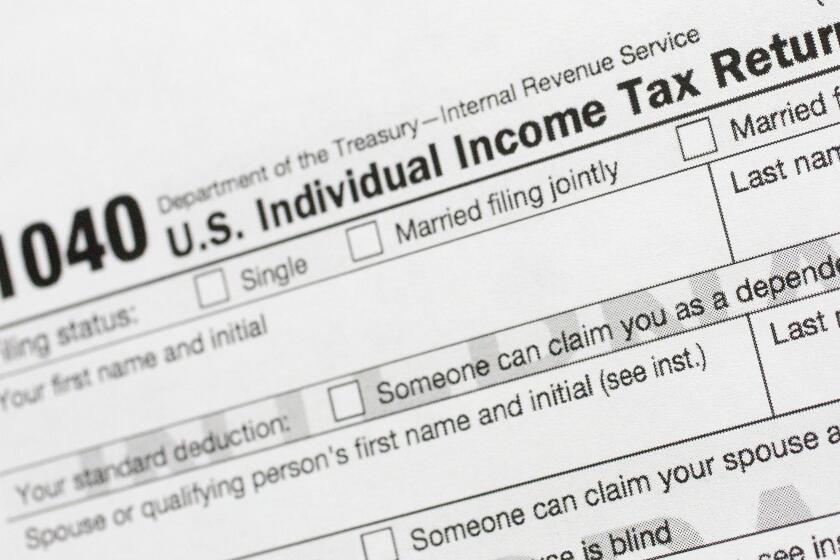Nigerian 419 scam is back, with a twist
When real estate agent Jennifer Caveness decided to sell her Huntington Beach town house recently, she listed the two-bedroom, two-bathroom property in the Multiple Listing Service, the traditional method of attracting sellers. She also advertised it on two popular websites, CraigsList.com and MySpace.com.
She quickly became the target of a new twist on an old scheme -- the Nigerian advance-fee scam called 419 after the number of the West African nation’s criminal code that prohibits this type of fraud.
For years, con artists have sent e-mails offering to share millions of dollars if the recipients would pay to cover the transfers costs, administrative fees, customs or bribes they say are needed to get the money out of the country. Or the e-mails promised big international lottery winnings after the payment of upfront fees.
Of course, the payoffs never materialize.
In the fraud’s latest incarnation, home sellers are being targeted. A potential buyer contacted Caveness via MySpace, the popular Internet social network, and asked for photos of the house. She checked his profile, discovered the buyer was from the United Kingdom and matched the country code of the phone number he gave her to England.
“I thought, ‘What do I care if I sell it to someone in another country?’ ” Caveness said. “I just want it sold.”
So she e-mailed him the pictures, then spoke to him on the phone.
“He said he was moving here, and he had a friend who had lived in Southern California before, and his friend had recommended Huntington Beach,” Caveness said. Although he had an accent and was a little hard for her to understand on the telephone, they instant-messaged for hours and she found him to be very believable.
They negotiated for an amount close to her $530,000 asking price, and the buyer said he wanted to pay the full amount through an online check service that does not require a signature.
Caveness, an agent with ReMax College Park, knew not to accept a check sent to her directly. The check needed to go through escrow. So she explained to him how escrow works and asked for a cashier’s check or a wire transfer. The buyer finally agreed.
“I told him it takes two weeks to clear, so we would be able to close in two weeks, and he said he was OK with that.”
The buyer said he would send the money with his lawyer, who would come to California to review the property and sign the contracts.
He told her he would “sign a power-of-attorney form, which all made it seem very legitimate,” Caveness said. “Then he gave me his lawyer’s info and his lawyer was from Nigeria. That threw up a flag for me because of the popular Nigerian scams.”
But the lawyer seemed genuine to Caveness and spoke to her at least half a dozen times to work out the details of the deal and his trip here.
“They make it seem like they’re very interested and honest in what they’re doing,” she said.
Then the buyer asked her to send the lawyer $2,500 to cover his travel costs.
Caveness refused.
Although some buyers’ costs are paid through escrow, Caveness explained, “that’s not a normal business cost. We went back and forth, and he said he would come up with $2,000 and I would come up with $500.” Caveness still wasn’t buying it. Finally, they agreed that the lawyer would come up with $350 and she would send $150 toward the expense.
Caveness sent the money by Western Union, a measure she took to protect her identity and bank information.
Knowing it was still somewhat of a gamble, she wired $150 to a third party in Lagos, Nigeria. Although that may not appear to be a large amount of money to many Americans, it is substantial in a country plagued by corruption and high unemployment, where the average income is $300 a month and some people live on less than $1 a day.
A week later, the lawyer called: Gunmen had robbed his office and he needed $350 more.
Caveness canceled the deal and reported the incident to the FBI’s Internet-crime complaint center. The agency, which is working with the Nigerian government, will look at names and similarities to determine whether a pattern exists and if these individuals are part of a larger scheme. The FBI, which receives 20,000 Internet-crime complaints a month, advised The Times against revealing the names of the men who contacted Caveness in case there was an investigation already underway involving them; also, Nigerian criminals have been known to threaten their online victims.
Peter Brust, former chief of the cyber-crime division at FBI headquarters, said that the new versions of the 419 scams are increasingly more believable. “It’s not like they offer you millions of dollars,” he said. “They read the newspapers and they know what’s possible on the Internet, like the social-networking sites.” The scam artists not only work out of Nigeria, he said. Other top spots include the United Kingdom, the Netherlands and South America.
The 419 is a common fraud.
“We’ve seen this primarily with website auctions. It seems to be a variation of that,” said Tony Chapa, special agent in charge of the U. S. Secret Service’s Los Angeles office. The agency also investigates these scams.
“Scammers are all over online classifieds looking for big-ticket items like this,” said Steven Salter of the national Better Business Bureau. In a common ploy, buyers overpay for an item with a check and ask the seller to send back the difference. Often the checks are counterfeit, but by the time the bank discovers that, the seller has already sent the item and the amount of the overpayment. The seller is out the original amount of the item, the overpayment and has the bounced check to deal with.
MySpace specifically warns about the overpayment scheme and “Nigerian” scam artists on its website and encourages members to report incidents so the alleged perpetrator’s account can be closed and law violators prosecuted.
Regarding the concerns of Caveness, a spokeswoman for MySpace said the company cannot comment on ongoing investigations. “We expect users to be vigilant and use the same common sense on MySpace that they would elsewhere online and in the rest of their daily lives.”
As for Caveness, she doesn’t expect to get her $150 back.
“This is a scam,” she said. “I need to make sure no one else loses money. A for-sale-by-owner might be kind of desperate in this market and could end up getting into a lot more trouble.”
*
(BEGIN TEXT OF INFOBOX)
Resources for staying cyber-safe
Where to turn for information on cyber scams:
* Internet users who suspect they are victims of cyber crime should go to www.ic3.gov. The Internet Crime Complaint Center, a partnership of the FBI and the National White Collar Crime Center, collects complaints, develops information and, when necessary, refers the allegations to the proper federal, state, local or international authorities for investigation.
* The FBI also recommends a consumer-advocacy website, Looks Too Good to Be True (www.lookstoogoodtobetrue.com), for prevention tips, victims’ stories, a test to determine how vulnerable you are to Internet scams or to order free fraud-prevention DVDs produced by the U.S. Postal Inspection Service, one of the sponsors of the site.
* Complaints can also be filed at www.ftc.gov, the online site of the Federal Trade Commission.
* Information from the federal government and technology companies on how to protect yourself online is available at onguardonline.com/crossborder.html.
-- Gayle Pollard-Terry
More to Read
Inside the business of entertainment
The Wide Shot brings you news, analysis and insights on everything from streaming wars to production — and what it all means for the future.
You may occasionally receive promotional content from the Los Angeles Times.










